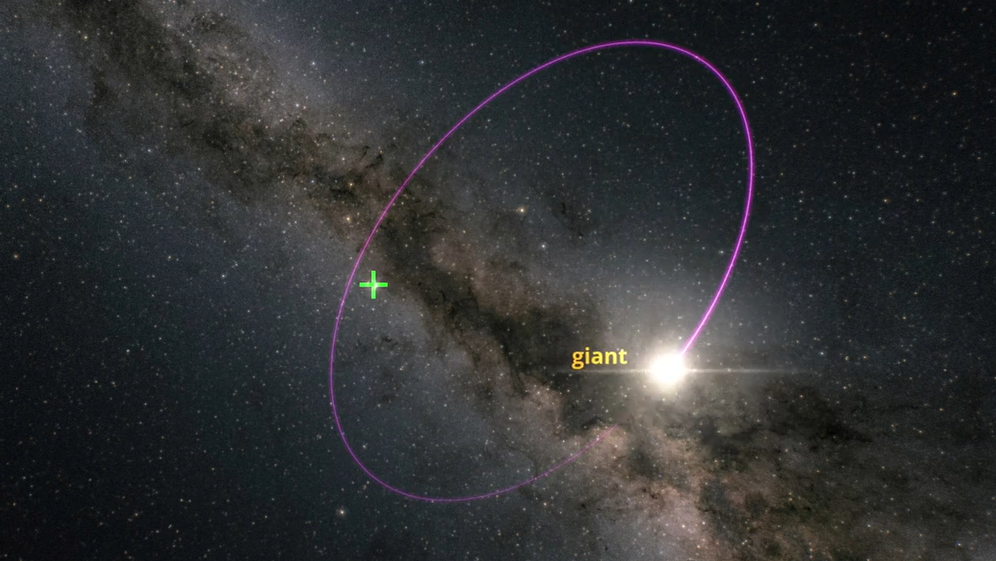The black hole that was discovered
(Video: Gaia Bh3)
An international team of researchers, led by Professor Tzvi Mazeh from Tel Aviv University, discovered a supermassive black hole orbiting around a heavy star, 33 times the mass of the sun, at a distance of 1,500 light-years from Earth.
This black hole found using data from the European space mission Gaia, weighs more than three times the known black holes in our galaxy. The Gaia spacecraft, launched by the European Space Agency in 2013, has been regularly measuring the position and brightness of over a billion stars in our Milky Way galaxy with unprecedented precision, akin to pinpointing a single grain of sand on the moon to the millimeter.
A consortium of hundreds of scientists across Europe processes the data from the spacecraft and makes it accessible to the entire scientific community. Under the leadership of Professor Tzvi Mazeh from Tel Aviv University's School of Physics and Astronomy, the research group participates in studying binary stars revealed through Gaia's data.
The extensive sample of binary stars is expected to include systems harboring black holes - an exceedingly rare phenomenon in the universe. According to the prevailing theory, when a star exhausts its fuel in the nuclear fusion occurring in its core, it collapses inward. If the star is massive enough, all remaining material collapses into an infinitely dense point. Consequently, the black hole can be seen as the "corpse" of a star that has completed its life cycle and collapsed onto itself.
Astrophysicists are still striving to understand the extreme conditions leading to the collapse of matter into the central point, hence every discovery of a black hole is met with immense excitement by researchers.
According to scientists, detecting black holes is exceptionally challenging because light cannot escape their strong gravitational pull. When a black hole is part of a binary system with a regular star, researchers use the visible motion of the star to measure the mass of its invisible companion, thus confirming it as a black hole. Indeed, in recent years, the Gaia spacecraft has already detected two black holes.
 Professor Tzvi Mazeh Photo: Tel Aviv University
Professor Tzvi Mazeh Photo: Tel Aviv UniversityWith the expectation that ongoing data collection by Gaia will lead to more black hole discoveries, Professor Mazeh, together with Professor Laurent Eyer from Geneva, has assembled a team from France, Germany, Spain, Belgium, Poland, and Switzerland to hunt for black holes using Gaia's data.
During their analysis of the new data, the team encountered a binary system containing a unique black hole that had never been seen before, with a mass 33 times that of the sun, at a distance of about 1,500 light-years from us. This new black hole is over three times heavier than the known ones in the Milky Way galaxy.
The binary system, named Gaia BH3, comprises a regular star likely formed over 10 billion years ago when our galaxy was still very young. The star orbits the black hole every 11 years. Professor Mazeh exclaimed, "This is an exhilarating discovery of the heaviest black hole in a known binary system in the galaxy today. It's been over 30 years since the speculation of a black hole's existence until the discovery of the first black hole, and over 50 years until we've discovered Gaia BH3 – the longest-period binary system known today. It's remarkable how humanity manages to navigate the vast expanses of the cosmos and discover such mysterious objects. I am convinced that this discovery will lead to a renewed understanding of the presence and prevalence of these elusive black holes lurking in the depths of our galaxy."





